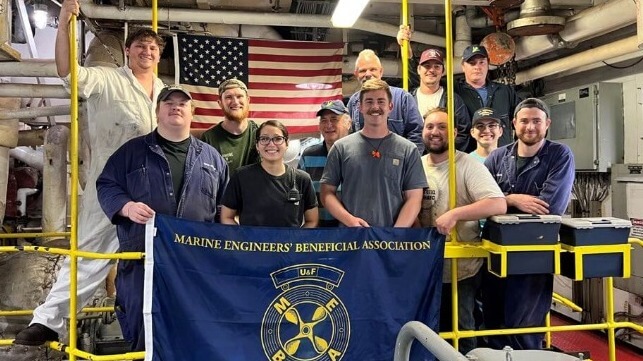MEBA Recruits a New Generation of Mariners

The maritime industry in the United States is undergoing a significant transformation. As the older generation of maritime professionals retires, a new wave of leaders is stepping in. However, attracting job-seekers to a career at sea has become increasingly challenging. The landscape of work has shifted dramatically, with younger generations favoring job mobility and diverse opportunities. Adam Vokac, President of the Marine Engineers’ Beneficial Association (M.E.B.A.), emphasizes the need for unions to adapt to these changes. His leadership team, one of the youngest in the country, is committed to revitalizing the industry and ensuring its relevance in today’s job market.
A Legacy of Advocacy and Change
M.E.B.A. has a rich history that spans 150 years. Founded in 1875 in Cleveland, Ohio, the union emerged in response to perilous working conditions faced by mariners. At that time, boiler explosions were common, and safety standards were virtually non-existent. The ten founding fathers of M.E.B.A. recognized that without collective action, conditions would not improve. They united to advocate for better safety measures and fair compensation.
Over the years, M.E.B.A. has achieved significant milestones. It was the first union to secure a 40-hour workweek for mariners, setting a precedent for labor standards in the maritime industry. The union fought for the right to overtime pay, night relief, and the management of its own hiring halls. These victories not only improved working conditions but also established a framework for fair treatment of maritime workers.
One of the most influential leaders in M.E.B.A.’s history was Jesse Calhoon, who served as President for over two decades. His tenure was marked by substantial increases in wages and benefits for union members. Calhoon’s legacy is preserved through the Calhoon M.E.B.A. Engineering School, which trains future generations of maritime professionals. Today, M.E.B.A. continues to advocate for the safety and rights of its members, representing a diverse workforce that includes marine engineers, deck officers, and shoreside positions.
Addressing Modern Challenges
The maritime industry faces new challenges that differ from those of the past. Currently, there is a global shortage of mariners, and the American flag fleet is shrinking. Vokac identifies growth as the primary challenge for M.E.B.A. Many newly licensed officers are reluctant to commit to long-term sea careers, seeking a better work-life balance instead. To address this, M.E.B.A. is actively pursuing shoreside opportunities for its members.
To make a career at sea more appealing, M.E.B.A. is advocating for a pay differential that compensates for the risks and sacrifices associated with maritime work. This “combat pay” would recognize the unique challenges faced by those who choose a life at sea. Additionally, the union is working on legislation to increase U.S. cargo by providing tax incentives for shippers who opt to fly the American flag. This initiative aims to enhance the competitiveness of U.S.-flagged ships and stimulate growth in the industry.
Vokac’s leadership has garnered recognition, including the prestigious AOTOS Award for his dedication to protecting the rights of merchant mariners. He understands that collaboration among unions and maritime companies is essential for improving the industry. By fostering partnerships and advocating for meaningful changes, Vokac and his team at M.E.B.A. are paving the way for a brighter future in American maritime.
